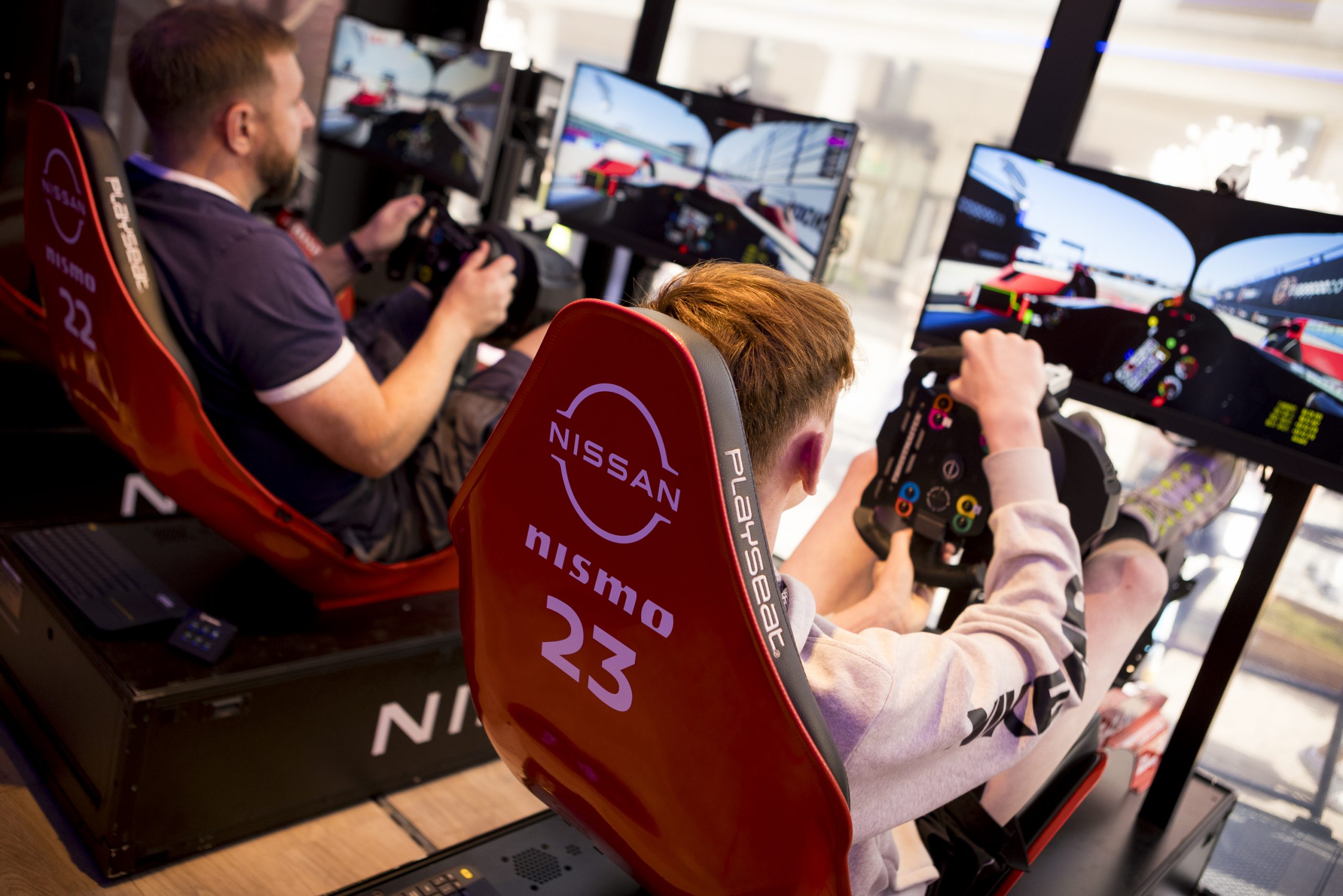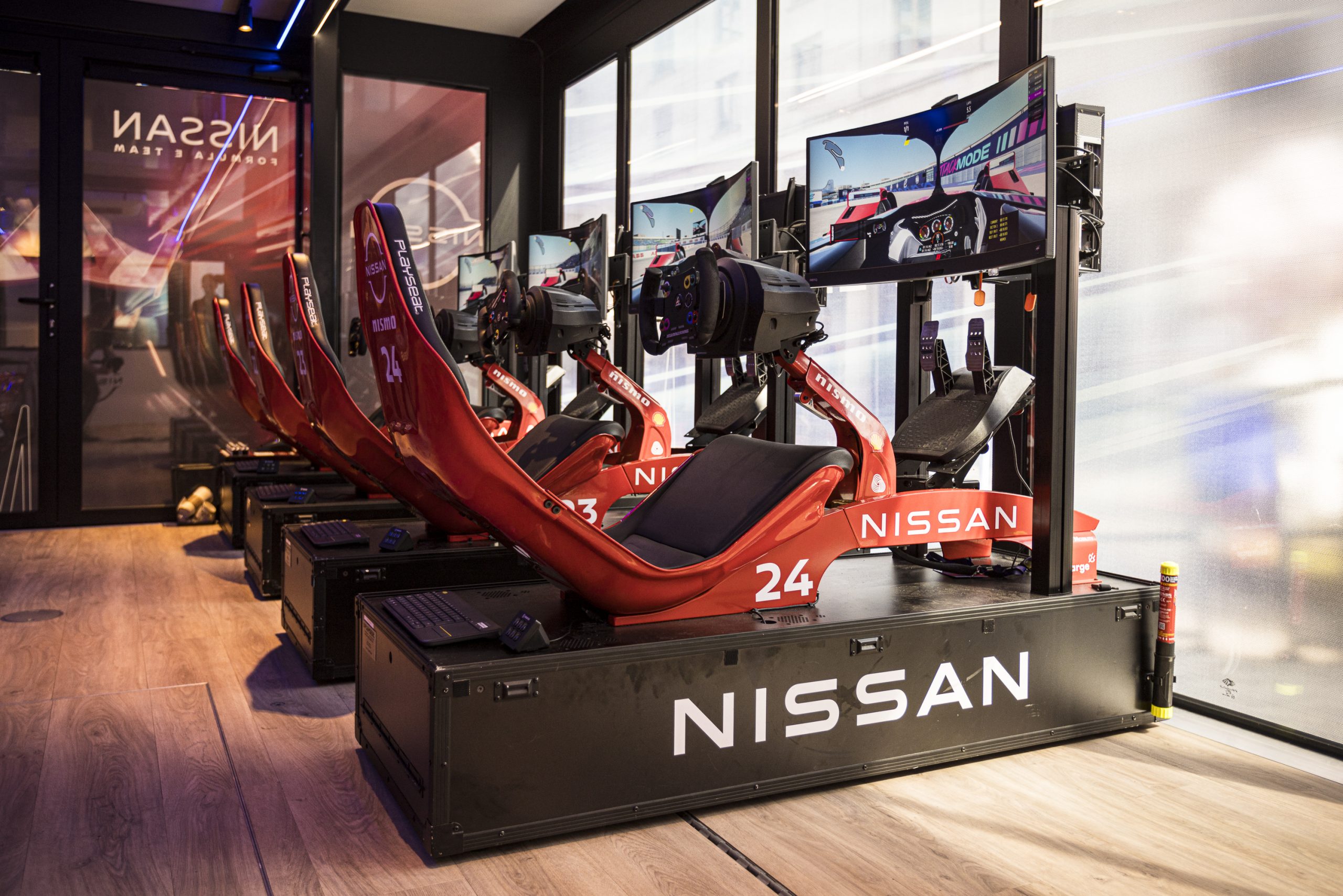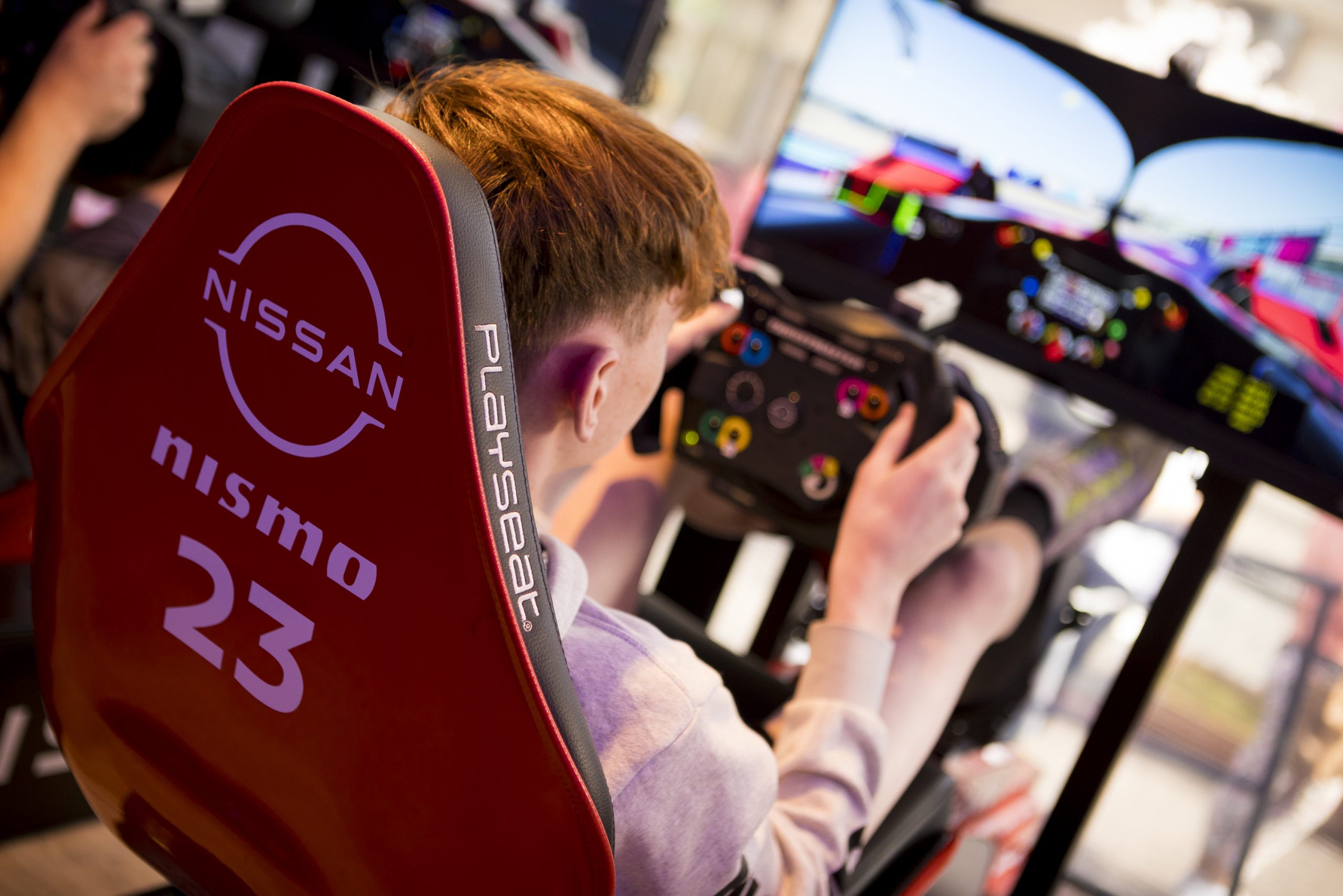Parents worried about their kids’ screentime this summer are being offered reassurance from two professional race drivers who’ve developed childhood skills from playing motorsports video games into successful careers.
Nissan Formula E Team race driver Sacha Fenestraz and sim driver Luca Ghiotto both say that time spent playing driving games when they were younger have helped them hone essential skills such as dexterity, concentration and stress management that they now use in their full-time jobs.
“I have less time to do gaming for leisure now that it is my career, but the console is where it started,” said Luca, who provides vital data to the race team from the simulator.
“While sim racing is a more advanced form of gaming, the fundamentals of racing on a console at home are also the same, making it widely accessible.”
Likewise, Sacha – who competes in the final two rounds of the championship this weekend and holds the record for the fastest lap ever recorded in Formula E – and all race drivers competing in Formula E, use team simulators as an integral part of their training regimes ahead of a race.
“A lot of the core skills you hone in racing, like focus and reaction times are all key elements of gaming too, so I build this into my schedule,” he said.
“Just like Formula E itself, there’s also the enjoyment factor – gaming is a great way to unwind, as well as upskill.”
Translating gamers into racers is nothing new to Nissan however, as fifteen years ago the Japanese brand created the GT Academy – a unique partnership with Sony Playstation.
Millions of entrants
Running from 2008-16, the Academy attracted millions of entrants from around the globe and gave Gran Turismo gamers the chance to compete against each other for a seat in a Nissan race car as a professional driver.
The Academy sparked widespread interest in the benefits of gaming to young people and even inspired some of the events chronicled in this year’s cinematic blockbuster, Gran Turismo.
Research carried out by Nissan also shows close links between gaming and gainful employment, with a survey of 1,000 people who regularly use video games for entertainment revealing 1 in 10 are already in a career related to their hobby, with 20% believing their hobby has influenced their career choices.
More than six in 10 (63 per cent) also believe people who game can develop certain skills more effectively than non-gamers, with rapid decision making (58 per cent), cognitive reaction (55 per cent) and logic (48 per cent) some of these key attributes.
Meanwhile, the research shows the technology can also benefit mental wellbeing. 56 per cent of respondents believe gaming helps them relax, and 19 per cent like the feeling of creativity it gives them.
Lucian Gheorghe, Senior Innovation Researcher and spokesperson for the Nissan Feel Electric Festival taking place in London this week, said: “Gaming is often seen as a fun pastime, a way to kill time, but sports and driving games specifically can really help you develop key skills that could even be turned into a career.
“Gaming can open up a world of career opportunities. Whether your focus is writing, art, coding, design or even motorsport – gaming has pathways to suit.”
The research, carried out by OnePoll, also spoke to 1,000 UK children aged 14-17 who play regularly and found that 73 per cent of those polled claimed they learned gaming skills from their parents.
“Healthy competition in sports games can be really beneficial and can help show the importance of being able to lose – and win – gracefully, and how to manage frustration when things don’t go your way,” added Lucian.
“These are all valuable life skills that you can take into any career. Of course, this is easier said than done when you’re pipped to the post at the last second in a racing game, costing you the championship – but it’s important to try.”
To discover more about Nissan’s commitment to the virtual world, particularly in terms of racing, scroll down…







